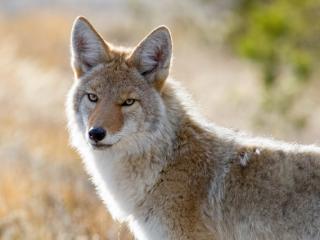What's it like to be a badger? British naturalist Charles Foster wanted to know, so he dug a burrow and lived in the darkness, eating worms. Yup, it was kind of disgusting, but he says the experience brought him closer to the wildness within himself.More
Science and Technology
Novelist Hari Kunzru talks about listening through the scratch and hiss of old 78’s for the voice of the past.More
In her memoir “Blue Dreams,” Lauren Slater reflects on the 30 years she has spent on Prozac, since the drug was brand new. Anne and Lauren compare notes on the relief antidepressants can bring, along with the downsides.More
The dream of SSRIs was based on an idea that depression is caused by a chemical imbalance in the brain. And that you could fix it, with a pill. But psychiatrist Charles Raison believes it’s a mistake to separate the mind from the body.More
It can be difficult for those who've never experienced a manic episode to know what it feels like. What can set one off. For Jaime Lowe, it was a fire that triggered a manic episode so severe completely lost touch with reality.More
Steve presents a profile of Edward Abbey, whose book "Desert Solitaire" changed the way people thought about the desert. Abbey inspired many of today's environmental activists. We hear excerpts from Abbey's work and his admirers.More
Bruno Latour straddles disciplines, from sociology to philosophy, and for the last four decades has been a formidable intellectual presence around the world. His new book digs deeply into debates about nature, culture, and the Anthropocene.More
For three decades, MIT professor Sherry Turkle's been looking at the ways we interact with machines. She believes our digital devices are taking a toll on our personal relationships.More
In 2018, we have a lot more to be anxious about than just nuclear weapons.More
We all think about time but probably not as deeply as the groundbreaking theoretical physicist Lee Smolin. Smolin has created a radical new view of the nature of time and the cosmos. He lays it out in a book called "Time Reborn: From the Crisis in Physics to the Future of the Universe."More
Unlike their canine relatives, coyotes have thrived in the U.S. Despite having been hunted just as intensely as wolves, coyotes have survived. Somehow, coyotes just spread, everywhere. Dan Flores told Steve Paulson how. More
The personal devices we live with and depend on — our computers, tablets, smartphones and more— all share information about us. Randolph Lewis tells more stories about how we’re being watched in a book called “Under Surveillance.”More
Do you ever get the feeling that your digital devices are eavesdropping on you?
More
In a world filled with devices that could be used to listen in on our daily lives, how do you take back control of your privacy? Steve Paulson asked security reporter Lily Hay Newman.More
Science journalist Claudia Hammond unlocks the weirdness of how we experience time — including our fixation on the future — in a book called "Time Warped."More
There's no shortage of forecasts about the future these days. But did you know that ordinary people can out-predict the pros? More
About a year ago, a group of progressive activists started a campaign to buy Twitter. Give the public shares in everyone’s favorite social media platform and turn it into a co-op. How's that working out?More
Journalist Elizabeth Kolbert argues that human vices are just as important as human virtues in shaping evolution.More


















